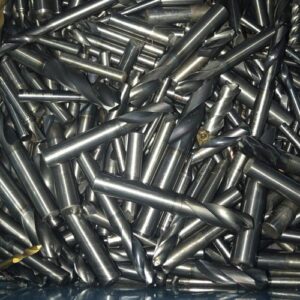Copper Ingots are solid blocks or bars of copper that have been cast from molten copper. These ingots are typically produced during the refining process and serve as a fundamental form for further processing and manufacturing in various industries. Copper ingots are valued for their high conductivity, corrosion resistance, and versatility, making them essential in electrical, construction, and manufacturing applications.
Key Features and Specifications:
- Composition:
- Purity: Copper ingots usually contain a high percentage of copper (often 99.9% or higher), which is essential for applications requiring excellent electrical and thermal conductivity.
- Alloying Elements: Depending on specific applications, some ingots may contain small amounts of alloying elements, such as tin or nickel, to enhance certain properties.
- Production Process:
- Melting: Raw copper is melted in a furnace to create molten metal.
- Casting: The molten copper is poured into molds to form ingots of various sizes and shapes. Common ingot weights range from a few kilograms to several tons.
- Cooling: Once poured, the copper ingots are allowed to cool and solidify, after which they are removed from the molds.
- Forms and Sizes:
- Standard Ingots: Typically cast in standard sizes for easy handling and transportation, but custom sizes can also be produced based on specific requirements.
- Shapes: While most copper ingots are rectangular or square, they can also be produced in various shapes depending on the application.
- Properties:
- Electrical Conductivity: Copper ingots exhibit high electrical conductivity, making them ideal for electrical applications.
- Thermal Conductivity: They also have excellent thermal conductivity, suitable for heat exchangers and cooling systems.
- Corrosion Resistance: Copper naturally resists corrosion, contributing to its durability in various environments.
- Applications:
- Electrical Manufacturing: Used to produce electrical wiring, connectors, and components in the electronics and electrical industries.
- Construction: Copper ingots are processed into pipes, fittings, and roofing materials in construction applications.
- Industrial Applications: Employed in manufacturing machinery, equipment, and tools that require strong and conductive materials.
- Economic Value:
- Market Demand: Copper is a highly sought-after metal due to its properties and applications, leading to stable demand for copper ingots in global markets.
- Investment Opportunities: Investors may purchase copper ingots as a hedge against inflation or as a means of diversifying their portfolios.
- Recycling:
- Sustainable Resource: Copper ingots can be produced from recycled copper scrap, contributing to sustainability efforts by conserving natural resources and reducing waste.
- Circular Economy: The ability to recycle copper ingots repeatedly without loss of quality supports the circular economy.
- Storage and Handling:
- Proper Storage: Copper ingots should be stored in a dry environment to prevent oxidation and corrosion.
- Handling: Due to their weight, proper handling equipment should be used to move copper ingots safely.
Conclusion:
Copper Ingots are a vital form of copper that plays a significant role in numerous industries due to their high purity, conductivity, and versatility. Their production from refined copper provides a sustainable option for meeting the demands of various applications while contributing to a circular economy through recycling. The economic value and wide-ranging uses of copper ingots make them a crucial commodity in the global market.




Reviews
There are no reviews yet.